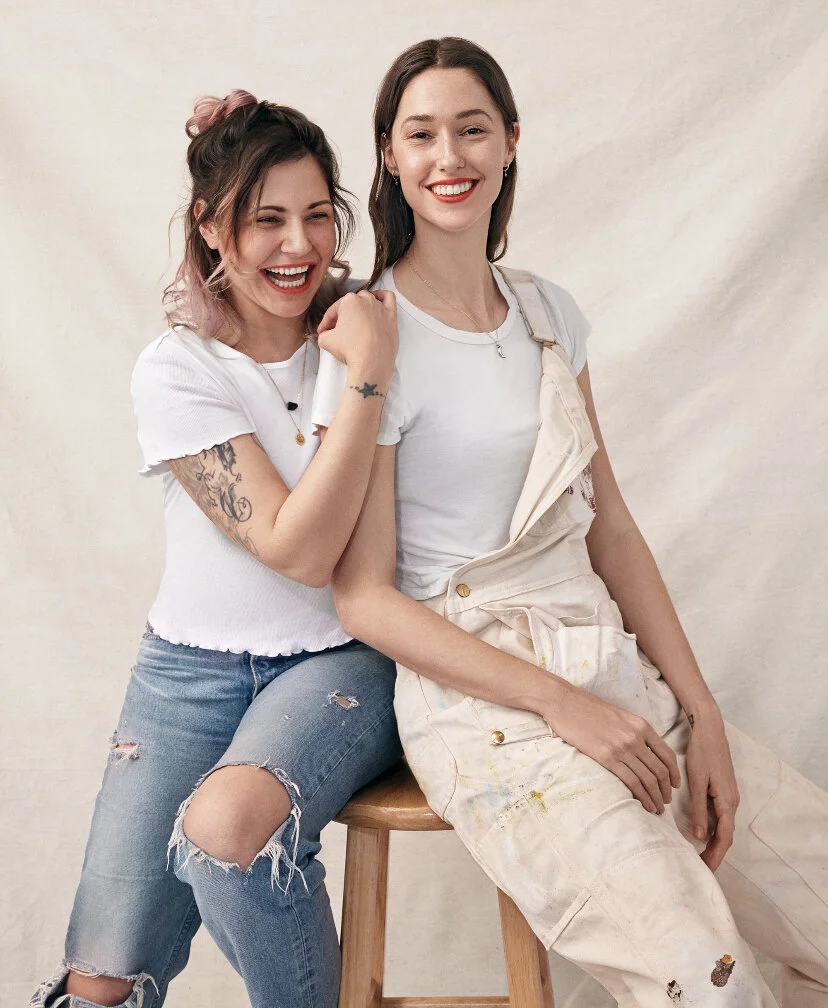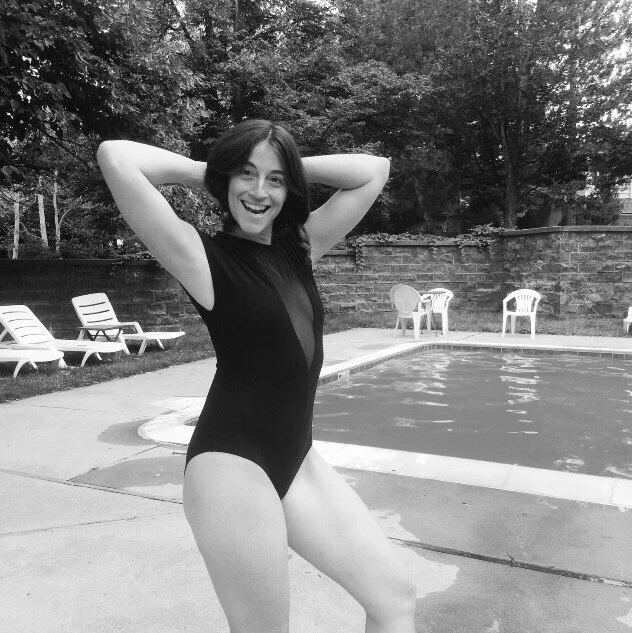It is difficult to tell if a photo has been edited. There is currently no policy or best practice in place to inform consumers on this topic. Liz Mooney and Maia Harms have set out to change that. Through their collaborative, The Post Co., this duo has set out to create more transparency in the photography industry. Below is an edited summary of the conversation between Post Co. & Mirame, which appeared on IG Live.
What inspired you ladies to start The Post Co.?
We have both been in the photo industry for around 10 years, and have seen a lot of things go down in the area of photo retouching. We decided that we needed to start igniting conversation and bring in transparency so that there is more ethical retouching in the photo industry. There is a massive lack of knowledge about the retouching industry, even within it. We wanted to see if we could make the changes on our own time within our own space.
What we noticed is that there has been a systematic and intentional omission of an entire group of people in the fashion industry. This has led to a lack of inclusion and knowledge about how to work with people of different skin tones, body types and genders. This can be traced back to the very first fashion publication, Vogue, which is over 120 years old. The magazine catered specifically to wealthy white women and their lifestyles. They never felt the need to change and branch out, and that rings true to the whole industry. Now, as people with various backgrounds have made their way into the discussion, these deep seeded biases are being brought to light. We want to take this discussion to the photo retouching industry.
What goes into a photo being “processed”?
First the photo is taken by the photographer, then passed on to the art director, creative director and then delivered to a retoucher. So the picture passes through quite a few hands, all of which bring their personal biases. It can be completely extreme as to how the image comes out. And this isn’t helpful for women and young girls. There is a lack of inclusion., for trans people, for people of color, etc. Influencers are now Facetuning and tweeking their bodies, instead of showing their natural beauty. This has created body dysmorphia. People are looking at their acne, cellulite, veins, pores, their size etc., and feeling bad about it, because it is not seen in the photos that are presented to them.
What do you want to see change?
We want to see more inclusion. Often times important parts of a models identity are being erased. For example, Vitalago. How empowering would it be for a young girl affected by this condition to see women who look like her? And also different skin tones. There is not just black and brown. There are different totalities to it. There are yellows, green, and blue pigments. That should be celebrated. Sometimes art directors or brand strategists say something like ‘their color looks too yellow, let’s just go ahead and desaturate it.” There is a lack of inclusion, and we have to knock down all the pillars if we are going to change all at once.
The photo industry and modeling have historically been romanticized. So there is this fear that if a brand admits to this part of the process (retouching), then the photo becomes false. Even for someone who is a professional in the field, I am sometimes unable to tell if a photo has been retouched. So it becomes damaging to all of us as we normalize what is not real. Something like a simple disclaimer would undue a lot of harm. We want to show through the Post Co. that you can be ethical and transparent without losing the mystique. Also, we want to create pillars to encourage people to examine their own biases before they begin the editing processing.
We want to see policy change. We want to see a code of ethics created. As simple as having a photo labeled as having been altered. We want to see photo editors get credited for their work, the same way that we see photographers, models, and makeup artists credited.
What is the future of Post Co.?
We are working on more photoshoots so that people can see our work. We plan to have in person events in the future. Also, we see ourselves having symposiums with speakers so that we can raise awareness on inclusion, and offer education. We are going to create original content so we have visuals, as well as interview professionals in the field. We want to get conversations started.
Want to learn more about The Post Co.? Visit them on Instagram or check out their website.
Wondering what we are doing our end to increase transparency? We have thought deeply about this. Since our first collection, racial inclusion has been important to us. We have cast models, collaborated with stylists, and manufactured with women of diverse backgrounds. But we recognize that there is still more work to be done. That being said, we are actively seeking more size and age inclusion. If you are, or know of anyone who would like to be featured on our social wearing Mirame, please have them contact us at info@mirameswim.com. We are also actively working on increasing our size range.
As far as photo editing, most of our shots are taken by either our fans, our team, or a professional photographer. In any of these sceneraios, we always ask for the raw file. We never remove stretch marks or blur hair follicles. We encourage our women to come as they are.
Recently, we have started a ‘Customer Photos’ section of our website, where fans or prospective shoppers can see everyday women wearing Mirame looks. Scroll down to see some of our #MirameMuchachas.




